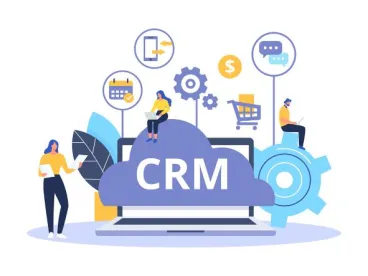In the ever-evolving landscape of higher education, universities are increasingly recognizing the significant role played by their alumni program data. These programs serve as crucial bridges between educational institutions and their graduates, fostering lifelong connections and cultivating a strong sense of community. However, amidst the myriad of strategies employed to engage and support alumni, one critical aspect often goes unnoticed: the quality of alumni data.
Surprisingly, many universities overlook the importance of maintaining accurate and up-to-date alumni data within their programs. Yet, this oversight can undermine the effectiveness of their initiatives, leading to missed opportunities for meaningful engagement and impactful contributions. Recognizing the pivotal role of data quality, we present seven key ways to maximize your alumni program data and unlock its true potential.
1. Define Alumni Program Objectives
Identify the goals and objectives of your alumni relations program. This could include fostering a sense of community among alumni, promoting lifelong engagement, facilitating networking opportunities, and supporting alumni’s personal and professional development. It’s important to understand the specific needs and expectations of your alumni community. Conduct surveys or interviews to gather feedback and insights that can help shape the program’s direction.
2. Stay in Touch (with Accurate Alumni Program Data)
Gather and maintain accurate contact information for your alumni. This should include email addresses, phone numbers, current employment details, area of study, graduation year and other relevant data. Your CRM is the ideal place to house this information.
CRM can enhance the success of your alumni program by changing the methodology of aggregating data and helping identify who-knows-who relationships. In addition, CRM integrations can make updating and maintaining the data quality of alumni lists a more manageable task.
Establish a system for tracking alumni engagement and interactions. This can help measure the program’s effectiveness and tailor communications to specific segments of your alumni community.
3. Develop Communication Channels
Communication is the foundation for engaging your alumni network. Plan for consistent communication to engage alumni and expand your organization’s access to information as well as support your brand. Alumni engage when they feel like they are valued, so invest in them by personalizing communication to fit their needs.
Create a dedicated alumni website or online portal where alumni can access resources, updates and connect with each other. Ensure the platform is user-friendly and provides a seamless experience.
Utilize social media platforms, such as LinkedIn, Facebook or Twitter, to connect with alumni and share updates, events and relevant content.
Create an email newsletter or regular email communication to keep alumni informed about news, events and career development opportunities. Personalize messages when possible to increase engagement.
4. Plan Engaging Events and Activities
Organize networking events or social gatherings where alumni can reconnect with each other and with the institution. Consider both in-person regional and virtual events to accommodate alumni in different locations.
Offer professional development opportunities, such as workshops, webinars or mentoring programs, that cater to the career needs and interests of your alumni network.
Provide opportunities for alumni to engage with current students through guest speaking and mentoring as well as university-sponsored events and community service initiatives.
5. Alumni Recognition and Awards
Establish an alumni recognition program to acknowledge and celebrate the achievements and contributions of notable alumni. This can include awards, honors or alumni spotlights featured on your website, social media and in university publications. Recognize alumni who support your institution through philanthropy, volunteering or advocacy.
6. Measure and Evaluate
Set key performance indicators (KPIs) to measure the success of your alumni relations program. This can include metrics such as event attendance, engagement levels, volunteer participation and open rates of alumni communications. Regularly collect feedback from alumni through surveys to gauge satisfaction, identify areas for improvement and assess the program’s impact on alumni. Use the data and insights gathered to refine and adjust your program strategies and activities.
7.Keep in Mind
You can have all the networking and educational events in the world, send out targeted communications, and offer terrific perks to your alumni, but if they aren’t reaching the right recipients, this time and effort will be wasted. So, don’t forget to focus on the data first – and if you need help, outsource it!
Remember, building a robust alumni relations program takes time and ongoing effort. Stay connected with your alumni community, listen to their needs, and continuously seek opportunities to provide value and meaningful engagement and you will strengthen your ties to them.




 />i
/>i

